
Dante Alighieri, most likely baptized Durante di Alighiero degli Alighieri and often referred to as Dante, was an Italian poet, writer, and philosopher. His Divine Comedy, originally called Comedìa and later christened Divina by Giovanni Boccaccio, is widely considered one of the most important poems of the Middle Ages and the greatest literary work in the Italian language.

The Divine Comedy is an Italian narrative poem by Dante Alighieri, begun c. 1308 and completed around 1321, shortly before the author's death. It is widely considered the pre-eminent work in Italian literature and one of the greatest works of Western literature. The poem's imaginative vision of the afterlife is representative of the medieval worldview as it existed in the Western Church by the 14th century. It helped establish the Tuscan language, in which it is written, as the standardized Italian language. It is divided into three parts: Inferno, Purgatorio, and Paradiso.

Beatrice "Bice" di Folco Portinari was an Italian woman who has been commonly identified as the principal inspiration for Dante Alighieri's Vita Nuova, and is also identified with the Beatrice who acts as his guide in the last book of his narrative poem the Divine Comedy, Paradiso, and during the conclusion of the preceding Purgatorio. In the Comedy, Beatrice symbolises divine grace and theology.
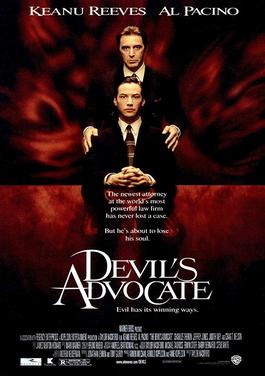
The Devil's Advocate is a 1997 American supernatural horror film directed by Taylor Hackford, written by Jonathan Lemkin and Tony Gilroy, and starring Keanu Reeves, Al Pacino, and Charlize Theron. Based on Andrew Neiderman's 1990 novel of the same name, it is about a gifted young Florida lawyer invited to work for a major New York City law firm. As his wife becomes haunted by frightening visions, the lawyer slowly realizes the firm's owner, John Milton, is in fact the Devil.
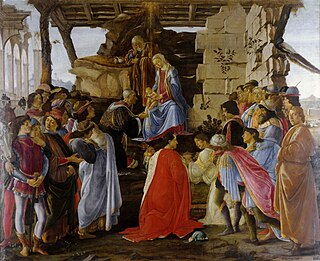
Self-insertion is a literary device in which the author writes themselves into the story under the guise of, or from the perspective of, a fictional character. The character, overtly or otherwise, behaves like, has the personality of, and may even be described as physically resembling the author of the work.

Francesca da Rimini or Francesca da Polenta was a medieval noblewoman of Ravenna, who was murdered by her husband, Giovanni Malatesta, upon his discovery of her affair with his brother, Paolo Malatesta. She was a contemporary of Dante Alighieri, who portrayed her as a character in the Divine Comedy.

The Gates of Hell is a monumental bronze sculptural group work by French artist Auguste Rodin that depicts a scene from the Inferno, the first section of Dante Alighieri's Divine Comedy. It stands at 6 metres high, 4 metres wide and 1 metre deep (19.7×13.1×3.3 ft) and contains 180 figures.

Bruna Patricia Maria Teresa Romilda Lombardi is a Brazilian poet, writer, model, and film and TV actress. She is daughter of Italian film producer Ugo Lombardi.

Belacqua is a minor character in Dante Alighieri's Purgatorio, Canto IV. He is considered the epitome of indolence and laziness, but he is nonetheless saved from the punishment of Hell in Inferno and often viewed as a comic element in the poem for his wit. The relevance of Belacqua is also driven by Samuel Beckett's strong interest in this character.

The Divine Comedy has been a source of inspiration for artists, musicians, and authors since its appearance in the late 13th and early 14th centuries. Works are included here if they have been described by scholars as relating substantially in their structure or content to the Divine Comedy.
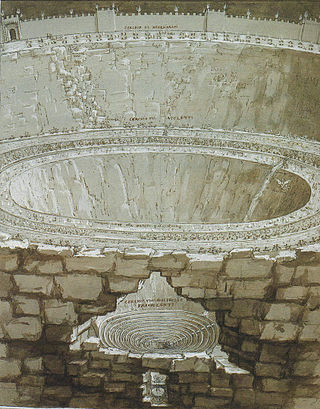
In Dante Alighieri's The Divine Comedy, the City of Dis encompasses the sixth through the ninth circles of Hell.

Wilfrid Laurier University is a public university in Ontario, Canada, with campuses in Waterloo, Brantford and Milton. The newer Brantford and Milton campuses are not considered satellite campuses of the original Waterloo campus; instead the university describes itself as a "multi-campus multi-community university". The university also operates offices in Kitchener, Toronto, and Yellowknife.

George John Warren Venables-Vernon, 5th Baron Vernon, was a British politician. He was one of the last members of parliament for Derbyshire and the first for South Derbyshire. Vernon had a lifetime enthusiasm for Italian literature, particularly Dante after visiting Italy as a child. Vernon county is named after him in Australia.
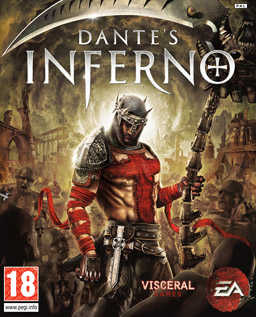
Dante's Inferno is a 2010 action-adventure hack and slash video game developed by Visceral Games and published by Electronic Arts. The game was released for PlayStation 3, Xbox 360 and PlayStation Portable in February 2010. The PlayStation Portable version was developed by Artificial Mind and Movement.
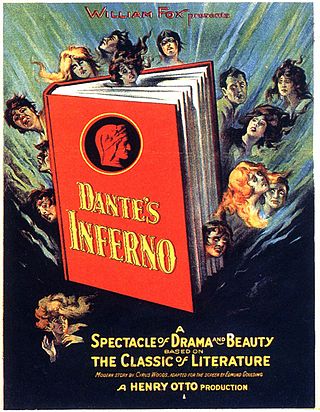
Dante's Inferno is a 1924 American silent drama film directed by Henry Otto that was released by Fox Film Corporation and adapted from Inferno, part of Dante Alighieri's epic poem Divine Comedy. The film mixes material from Dante's "Inferno" with plot points from Charles Dickens' A Christmas Carol. The book was filmed earlier in 1911 in Italy as L'Inferno, and Fox later remade the film in 1935, again as Dante's Inferno, starring Spencer Tracy in the lead role.
Justine Constance Wirix-van Mansvelt was a Dutch Protestant expert on the oeuvre of the Italian poet and writer Dante Alighieri (1265–1321).
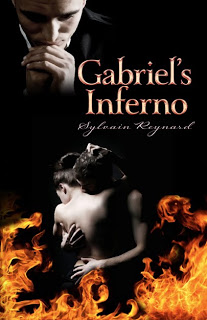
Gabriel's Inferno is an erotic romance novel by an anonymous Canadian author under the pen name Sylvain Reynard. The story was first published in novel format in 2011 by Omnific Publishing, with further publishing rights to the series being purchased by Berkley Books. The work was first published on 4 September 2012, along with the second book in the series, Gabriel's Rapture.
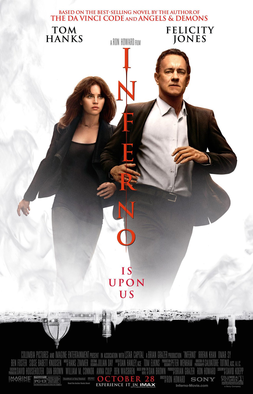
Inferno is a 2016 American action mystery thriller film directed by Ron Howard and written by David Koepp, loosely based on the 2013 novel of the same name by Dan Brown. It is the sequel to The Da Vinci Code (2006) and Angels & Demons (2009), and is the third and final film in the Robert Langdon film series. It stars Tom Hanks, reprising his role as Robert Langdon, alongside Felicity Jones as Dr. Sienna Brooks, Omar Sy, Sidse Babett Knudsen, Ben Foster, and Irrfan Khan.

Inferno is the seventy-third release and twelfth live album by German electronic group Tangerine Dream. It is the first live album to feature new compositions since 220 Volt Live (1993). The lyrical content is based on the first part of the Italian narrative poem Divine Comedy by Dante Alighieri. Inferno is the first album to feature percussionist Iris Camaa who remained with the group until 2014.




















